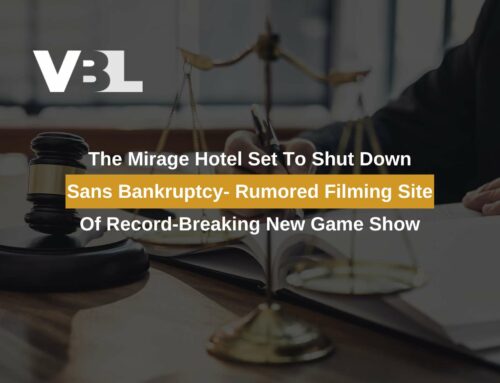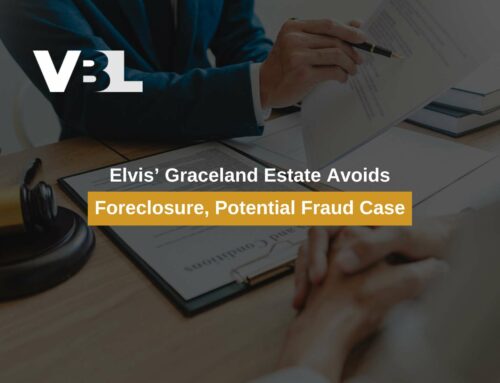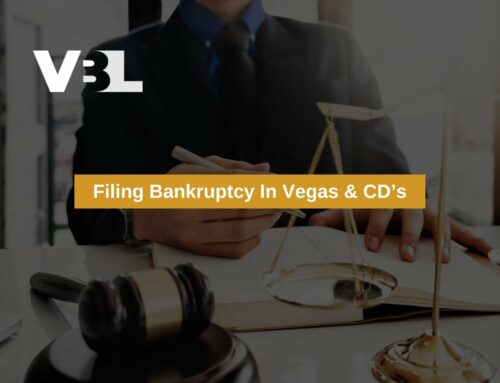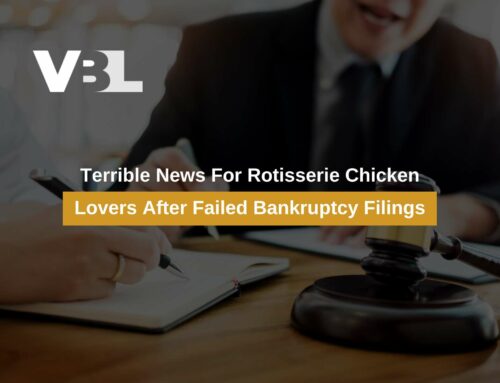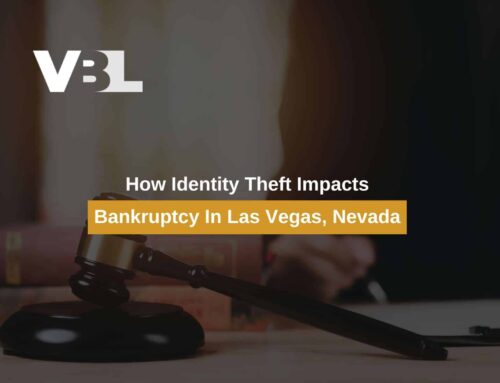House Poor in Las Vegas? How Bankruptcy Might Be Able to Help
For most of us, the only way to transition from renting to homeownership is by taking out a home mortgage. While paying rent to a landlord can feel like your money is going down the drain, buying a home can come with hidden costs. When you combine these costs with sky-high interest rates, homeownership comes with its financial risks. If you feel like the costs related to owning your own home are overwhelming, you might be “house-poor.” This type of issue needs to be addressed, or you could be one financial emergency or setback away from losing your home. Read on to learn more about this phenomenon, and if you’re considering filing for bankruptcy in Las Vegas, call 702-370-0155 for your free consultation with our firm.
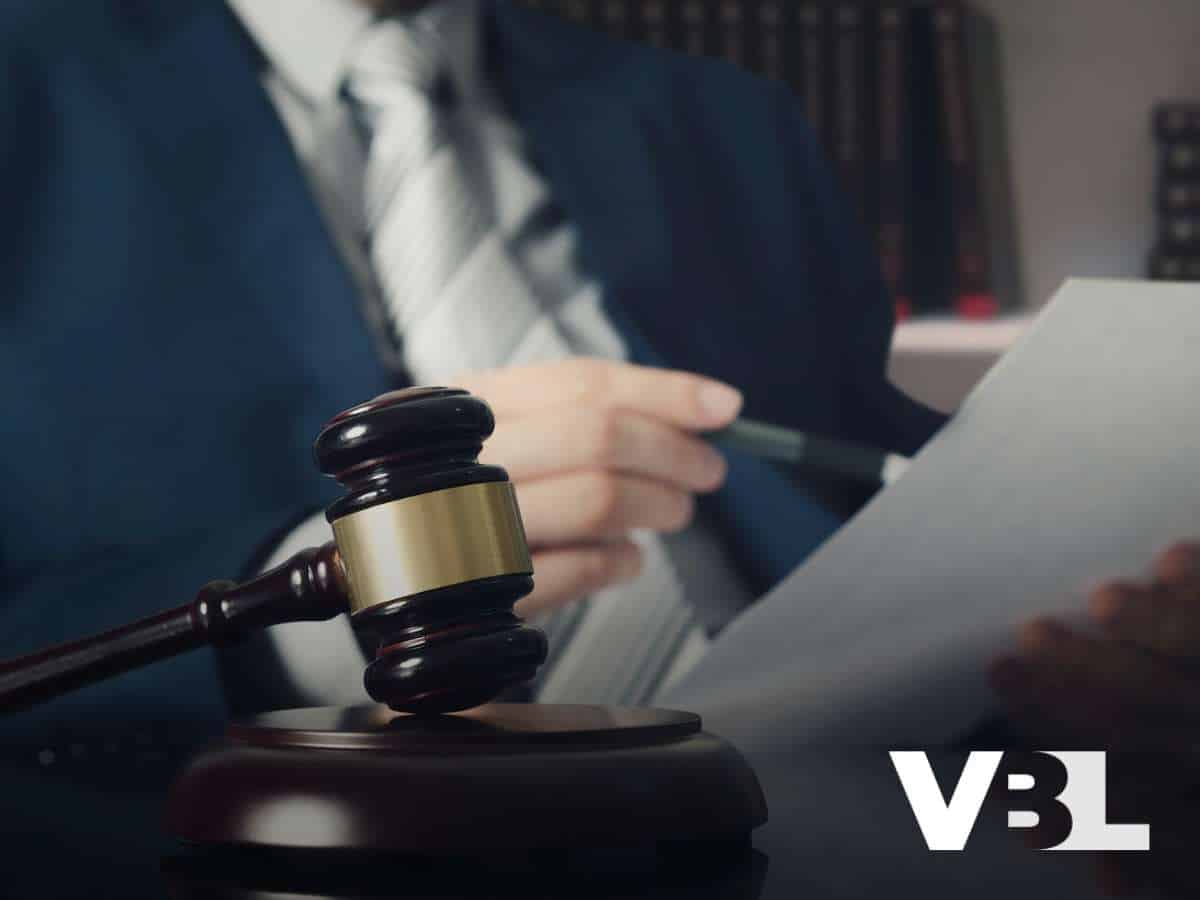
What is House Poor?
When someone is considered house-poor, it means that their costs of homeownership are outside of their budget. Some might say that a person “owns more house than they can afford.” However, with the current state of the housing market, most people are priced out of homes that would’ve previously been deemed reasonable or modest. Housing costs go beyond a home mortgage and can include expenses like repairs, maintenance, landscaping, HOA fees, property taxes, and more. House poor isn’t a precise term, and different people hold different definitions of house poor, such as:
- Your house is worth more than 2.5 times your annual salary
- You spend more than 28% of your take-home income on housing costs
- Your back-end debt-to-income ratio is higher than 36%
- Anyone who struggles to pay their necessary expenses after buying a home
Some people may be house-poor from the moment they enter into their mortgage agreement, while others may have budgeted carefully but experienced an emergency or lifestyle change that changed their circumstances. Someone who works in a physical injury could become injured and be forced into lower-paying work. A family member could develop a medical condition that comes with expensive treatments or requires someone in the household to miss work to provide care. Property taxes could increase or the homeowner could have an adjustable rate mortgage and be unprepared for rises in these costs. The homeowner could simply have bad luck and need to spend significant amounts on repairs and maintenance around the home in quick succession.
Removing a Junior Mortgage with Chapter 13 Bankruptcy
Filing for bankruptcy won’t allow you to clear a primary mortgage debt while retaining ownership of your home. However, if you have a second mortgage, also known as a junior mortgage, on your home, Chapter 13 bankruptcy might help. Removing a second mortgage from your monthly costs could bring your housing expenses down to levels that are no longer considered house-poor.
Chapter 13 bankruptcy is a payment plan bankruptcy. It reorganizes debts so they will be paid off in 3 or 5 years. Bankruptcy fees, secured debts, and priority debts must be paid off in full for a Chapter 13 payment plan to be approved. Unsecured debts can be cleared if the debtor doesn’t have enough disposable monthly income to pay them off during their payment plan. Chapter 13 offers a unique benefit from Chapter 7 in that it allows debtors to treat junior mortgages on their homes like unsecured debts.
To qualify for lien stripping, or the process of removing junior mortgages from one’s home through Chapter 13 bankruptcy, the first mortgage on the home must be higher than the home’s market value. If the debtor has three mortgages, a second and third mortgage can be discharged if the first mortgage is more than the home’s value. If the house is not worth more than the combined value of the first and second mortgages, only the third mortgage can be discharged. If you have more questions about lien stripping in Chapter 13 bankruptcy, call 702-370-0155 to schedule your free consultation with an experienced member of our Las Vegas bankruptcy team.
Creating Your Space in Your Budget by Clearing Unsecured Debts
As the cost of living increases, traditional measures of house poor might be less relevant. But no matter how you calculate house poor, eliminating unsecured debts can create space in a budget that can be used towards housing expenses. When a debt is unsecured, it means there is no asset attached as collateral that the creditor can repossess if the debtor fails to make payments. A mortgage is a secured debt because the house is the collateral that the creditor can repossess (through a home foreclosure) if the borrower falls into arrears. It’s also important to differentiate between an unsecured debt and a priority debt. Priority debts might not have collateral attached to them but are held to a higher standard than unsecured debts. Common examples are student loans, certain tax debts, and unpaid child support. You can pay these debts off in a Chapter 13 payment plan, but they won’t be erased by a Chapter 7 bankruptcy filing.
So which debts can you discharge with bankruptcy to free up the budget for housing expenses? Examples of debts that people clear with both types of bankruptcy include credit cards, medical bills, personal loans, repossession deficiencies, and unpaid bills. Some taxes and lawsuit judgments can be discharged by a bankruptcy filing. You can also use bankruptcy to surrender a secured asset without the financial penalties that you might otherwise be subjected to for doing so. For example, you could surrender a vehicle that you can no longer afford or break a lease without being charged a fee.
If you want to discharge unsecured debts without paying back the rest of your debts in a payment plan, you need to be able to prove that you qualify for Chapter 7 bankruptcy in Nevada. There are only 2 ways to do this: by comparing your income to the household median income in Nevada or by passing the means test. Both of these methods require precise calculation or it could put your case and assets in jeopardy. For more information about qualifying for Chapter 7 bankruptcy in Las Vegas, call 702-370-0155 for your phone-free consultation.
Feeling House Poor & Under Pressure? Contact Our Firm for Your Free Bankruptcy Consultation.
If your budget is stretched thin and you’re concerned you might be house-poor, you aren’t alone- approximately 25% of United States homeowners are in the same boat. That means that many families are living on the edge of financial disaster. Failure to pay your housing expenses on time can result in damage to your credit, harassment by creditors, and even home foreclosure. Bankruptcy can protect your assets from debt collectors and give you security while you work out your financial situation. Las Vegas Bankruptcy Lawyers can help you execute an effective and accurate filing so you can experience all of the benefits with as few drawbacks as possible. See what our team can do for you, and if you qualify for an affordable payment plan option, with no risk or obligation. To schedule your free consultation by phone with Las Vegas Bankruptcy Lawyers, call 702-370-0155.

Las Vegas Bankruptcy Lawyers
LAS VEGAS
7251 W Lake Mead BLVD #300
Las Vegas, NV89128
Office: 702-879-2499
Email: [email protected]
HENDERSON
1489 W Warm Springs Rd. Ste 110
Henderson, NV 89014
Email: [email protected]
Additional Information at:
Phoenix Bankruptcy Lawyer
Phoenix DUI Lawyer
Chandler Bankruptcy Lawyer
Vegas Zero Down Bankruptcy Attorney
Gilbert Bankruptcy Lawyers
Arizona Zero Down DUI
AZ Bankruptcy Lawyer





